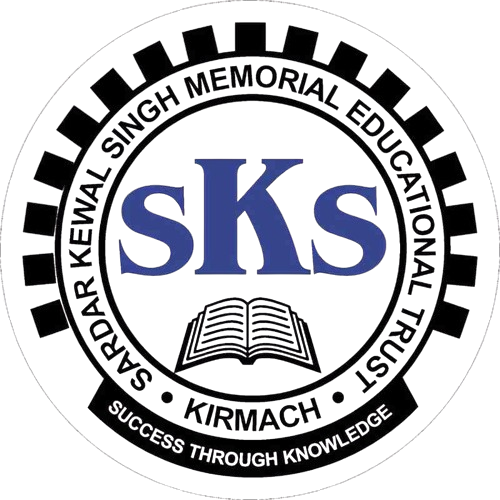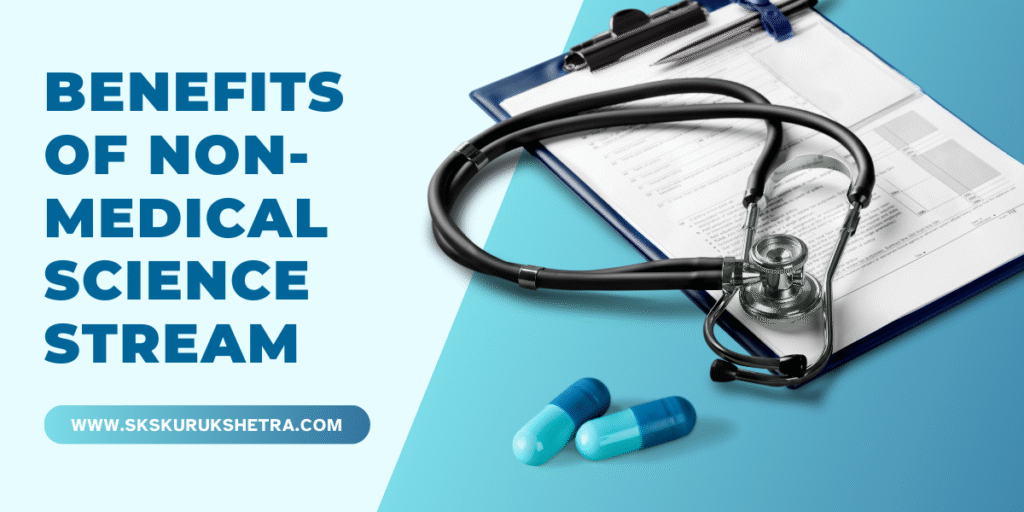If you are deciding which stream to choose after 10th or 12th, this article explains all the benefits of the non-medical science stream.
It covers academics, careers, skills, higher education options, comparisons with other streams, practical activities, myths and facts, and frequently asked questions.
Must Read: BCom vs BBA: A Comprehensive Guide to Choosing the Right Business Course
What is the non-medical science stream?
The non-medical science stream (often called PCM: Physics, Chemistry, Mathematics) focuses on core physical sciences and mathematics.
Students may also choose optional subjects such as Computer Science, Electronics or Information Practices. This stream prepares students for engineering, technology, research, architecture and many other technical careers.
Who chooses non-medical science?
Students who choose non-medical generally:
- Enjoy solving numerical and logical problems.
- Like building, designing or fixing devices and systems.
- Want careers in engineering, software, data science, architecture, or research.
- Prefer mathematics and physics to biology and life sciences.
Core subjects you will study
- Physics — mechanics, electricity, magnetism, optics, modern physics.
- Chemistry — physical, inorganic, and organic chemistry basics.
- Mathematics — algebra, calculus, geometry, trigonometry, statistics.
- Computer Science / Electronics (optional) — programming basics, circuits, logic.
- Laboratory practicals — experiments and data recording for physics and chemistry.
Top Benefits of Non Medical Science Stream
Below are the major benefits, explained simply and clearly.
1. Wide and high-demand career choices
Non-medical opens many career paths:
- Engineering (civil, mechanical, electrical, electronics, computer, chemical, aerospace)
- Computer Science & IT (software developer, AI/ML engineer, cybersecurity)
- Data Science & Analytics (data analyst, data engineer)
- Architecture & Design (architect, urban planner, industrial designer)
- Research & Academia (physics, chemistry, mathematics research)
- Robotics & Automation
- Industrial & Manufacturing roles
Demand for technical skills remains strong across industries, which means many job opportunities.
2. Strong foundation in logical and analytical thinking
Mathematics and physics train you to:
- Break complex problems into smaller steps.
- Use formulas and logic to reach solutions.
- Think in an ordered and careful way.
These skills help in technical work and in other fields that require analysis.
3. Better preparation for technology and future jobs
As technology affects more jobs, students with strong math and physics are better prepared for:
- Programming and software development.
- Fields such as AI, machine learning, data analytics and automation.
- Technical roles across many industries.
4. High long-term earning potential
Technical careers often offer strong salary growth with experience and specialization. Engineering, software and data roles frequently provide higher pay as skills increase and responsibilities grow.
5. Many higher education options
From a non-medical background you can pursue:
- B.Tech / B.E. in many branches of engineering.
- B.Sc. in Physics, Chemistry, Mathematics, or Computer Science.
- B.Arch for architecture (with design aptitude).
- Integrated M.Sc., M.Tech., MS, PhD for higher research.
- Professional certifications in AI, cloud, cybersecurity, robotics, or data science.
6. Hands-on practical skills through labs and projects
Physics and chemistry labs develop:
- Careful measurement and observation skills.
- Ability to design simple experiments.
- Documentation and reporting skills.
Hands-on projects like building small circuits or coding apps make learning practical and useful.
7. Opportunities for entrepreneurship and innovation
With math, engineering and computing skills you can:
- Prototype new products.
- Start software or hardware businesses.
- Solve local and industry problems with technical solutions.
Technical skills help convert ideas into real products or services.
8. Transferable skills for many careers
If you later switch to management, law, or business, your technical background still helps:
- Quantitative reasoning used in finance and consulting.
- Logical analysis useful in law or policy roles.
- Teaching and tutoring opportunities in math and science.
9. Strong base for technical and competitive exams
Many entrance and competitive exams prefer PCM background:
- Engineering entrance exams.
- Technical posts in government and defense.
- Architecture and design entrance tests.
10. Global recognition and mobility
Technical degrees and skills are widely recognized around the world. If you wish to study or work abroad, degrees in engineering, computer science or data science are often valued by employers and universities.
Skillset you develop in non-medical science
Hard skills
- Advanced mathematics including calculus and statistics.
- Fundamental physics principles.
- Laboratory techniques and experiment design.
- Basic programming and computational thinking (if computer science is chosen).
- Engineering concepts and technical drawing (for some courses).
Soft skills
- Analytical thinking and problem solving.
- Attention to detail.
- Clear technical communication.
- Project planning and teamwork.
- Time management and disciplined study habits.
These skills make students ready for both technical jobs and leadership roles later.
How non-medical compares with other streams
Versus Medical (PCB)
- Focus: Non-medical focuses on math and physical sciences; medical focuses on biology and health sciences.
- Careers: Non-medical leads mainly to engineering and tech; medical leads to medicine, nursing, and allied health.
- Flexibility: Non-medical allows transitions into tech, business analytics, and research more readily than medical does into non-biological fields.
Versus Commerce / Humanities
- Quantitative advantage: Non-medical emphasizes math and quantitative reasoning.
- Career variety: Non-medical graduates can move into tech, engineering, finance or entrepreneurship, while commerce focuses on business and finance and humanities on social sciences.
- Combining options: Non-medical skills pair well with business or design for interdisciplinary careers.
Career paths in detail
Below are common careers, what they involve, and how non-medical prepares you.
1. Engineering (Civil, Mechanical, Electrical, Electronics, Computer, etc.)
What you do: Design, build, test and maintain structures, machines and systems.
Non-medical advantage: Physics and math are core to understanding mechanics, materials, fluid dynamics, circuits and control systems.
2. Computer Science & Software Development
What you do: Develop software, web apps, mobile apps, and systems for data processing.
Non-medical advantage: Logical thinking, algorithms and optional computer science at school create a smooth path to programming.
3. Data Science & Analytics
What you do: Clean, analyze and model data to extract insights for decisions.
Non-medical advantage: Math, statistics and logical thinking form the backbone of data science.
4. Architecture & Design
What you do: Plan and design buildings, spaces, and structures.
Non-medical advantage: Mathematics and physics help with structural calculations, while creativity completes the skill set.
5. Research & Academics (Physics, Chemistry, Math)
What you do: Conduct experiments, publish papers and teach at universities or institutions.
Non-medical advantage: Strong theoretical and experimental grounding allows pursuit of higher degrees and research careers.
6. Robotics & Automation
What you do: Build robots, control systems and automated solutions for industry and daily life.
Non-medical advantage: Combines mechanics, electronics and programming — all central to PCM.
7. Manufacturing & Industrial Roles
What you do: Work on product design, process improvement, quality control and production systems.
Non-medical advantage: Understanding materials, processes and measurement helps optimize production.
8. Finance & Quantitative Roles
What you do: Create models for risk, pricing and trading in finance.
Non-medical advantage: Strong math and statistical skills are useful for quantitative finance and data-driven decision making.
Higher education routes and how they map from non-medical
- B.Tech / B.E. — Core engineering education and technical training.
- B.Sc. (Physics/Chemistry/Math/Computer Science) — Foundation for research or teaching.
- B.Arch — Architecture degree combining design and calculation.
- Integrated M.Sc./M.Tech./MS — Advanced study for specialization.
- PhD — Research career in academia or industry R&D.
- Professional courses & certifications — Shorter courses in AI, cloud computing, cybersecurity, robotics and data science provide market-ready skills.
These options let students choose practical careers or deep academic research based on their interests.
Projects and activities you can do in school to boost benefits
- Build simple circuits or robotics kits.
- Create a small mobile app or website.
- Enter math and science competitions or Olympiads.
- Join coding clubs or school tech teams.
- Organize or present at school science fairs.
- Volunteer for local technical projects (e.g., water testing, solar lamp assembly).
These activities strengthen understanding, build a portfolio, and help with college or job applications.
Common myths and the truth
Myth 1: Non-medical is only for engineers.
Truth: Non-medical leads to many roles: tech, research, design, finance, entrepreneurship and more.
Myth 2: You cannot switch to medical after non-medical.
Truth: Switching to medicine is difficult because medical courses expect biology background, but alternative health-related careers remain possible with extra study.
Myth 3: Non-medical requires genius-level math skill.
Truth: Success needs steady study and practice, not innate genius. Good teachers and consistent work help most students.
How to make the most of the non-medical stream (tips)
- Practice math daily. Short, regular practice is better than occasional long sessions.
- Focus on understanding. Learn the logic behind formulas and experiments rather than memorizing.
- Start basic programming. Simple coding tasks improve reasoning and open many paths.
- Take labs seriously. Accurate observation and recording are valuable skills.
- Solve sample and past papers if preparing for entrance exams.
- Form study groups. Teaching peers strengthens your own understanding.
- Balance study with hobbies. Sports or arts reduce stress and sustain motivation.
How to choose between non-medical and other streams
Ask yourself:
- Do you enjoy solving math problems and physics questions?
- Do you like building or programming things?
- Do you want a career in engineering, technology, or research?
If you answer yes, the non-medical stream is a strong match. If you prefer biology, medicine or life sciences, consider the medical stream.
Must Read: Importance of Child Psychology in Education – A Complete Guide
Conclusion
The non-medical science stream gives a strong, flexible foundation. It builds analytical thinking, practical skills and opens many career paths — engineering, software, data science, research, architecture and more.
If you enjoy mathematics, logic and building or solving technical problems, the non-medical stream provides clear benefits and many future options.
Your interest and consistent effort matter most; steady practice and guided study will help you succeed.
Frequently Asked Questions (FAQ)
Q1: Is the non-medical stream good for job security?
Yes. Technical skills in engineering, IT and data science are widely used and likely to remain in demand.
Q2: Can I become a doctor after choosing non-medical?
Becoming a medical doctor is difficult without a biology background. Medicine typically requires PCB (Physics, Chemistry, Biology). Some allied health fields may be reachable later with extra study.
Q3: Do I need to be extremely good at math?
You should be comfortable practicing math regularly. Hard work and good guidance usually matter more than natural talent.
Q4: Are there creative jobs after non-medical?
Yes. Architecture, product design, game development and UX/UI design combine technical knowledge with creativity.
Q5: Can non-medical students shift to business or humanities later?
Yes. Many students pursue MBAs, law or humanities after a technical degree. A technical background can be an advantage in analytics and management.
Q6: Which subjects should I choose with PCM?
Good options include Computer Science, Electronics, or Information Practices. Choose based on interest and future goals.

